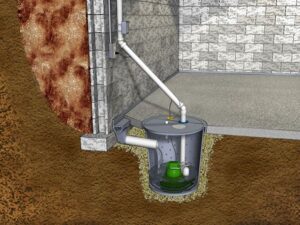Tree service companies help property owners keep their trees healthy and attractive. They prune and trim trees, as well as remove diseased and dying trees. They can also help prevent damage from storms and other problems.

A reputable tree service will ensure that all work is done safely. They should also be knowledgeable about local regulations. Visit https://www.lee-tree-service.com to learn more.
A healthy tree adds beauty to your property, improves air quality, and provides shade from the summer sun. But sometimes a dead or damaged tree can pose dangers to your home and family. This is why you need to hire a professional tree service. These professionals have the training and equipment to safely remove trees and their stumps, while minimizing damage to the surrounding environment and structures.
The tree service industry offers a wide range of services, including trimming, pruning, stump grinding, and tree cutting. They can also plant trees and shrubs for their clients. Tree service companies typically employ arborists to perform these tasks. An arborist is a tree surgeon with a degree in horticulture and extensive education in the care and maintenance of trees.
Stump grinding is the process of removing a tree stump and its roots to allow grass or other plants to grow over it. Performing this task requires specialized equipment, and it can take a significant amount of time. Stump grinding is a critical part of tree service, as it prevents re-growth of the stump and reduces the risk of future tree stump sprouts.
Tree service contractors can also prune and trim trees to promote their health. They may also trim branches that are growing too close to electrical lines, or those that encroach on buildings or sidewalks. In addition, they can remove dead or diseased limbs, tangled brush, and branches that rub together. This can be done both on residential and commercial properties.
Tree Pruning
Tree trimming is a vital component of tree maintenance and helps promote overall tree health. It also enhances the beauty of your property and boosts curb appeal. However, it is important to choose a company that is well-versed in proper pruning techniques. Inexperienced professionals can make bad cuts that harm the trees. Here are some of the main benefits of hiring a professional tree service:
Improves Aesthetics: Thins out overcrowded canopies, making them more attractive and complementing your landscape. This also encourages healthier growth and prevents diseases by reducing competition for water and nutrients. Enhances Safety: Properly trimmed limbs are less likely to fall during severe weather, protecting people and properties. In addition, it reduces the risk of damage to nearby structures and structures such as houses, cars, and power lines.
Helps Control Pests: Removing damaged and diseased limbs can significantly reduce the risk of insect infestation. In addition, regular trimming can discourage pests and prevent them from spreading to other limbs and trees on your property.
Prevents Damage to Your Home: Overgrown limbs that hang over your roof can cause damage during storms and high winds. Pruning services can remove these limbs before they are a problem and reduce the risk of damage to your home and surrounding structures. This service can also increase the overall strength of your trees, helping them to withstand severe weather.
Tree Trimming
Tree trimming services help property owners keep their trees in good shape and maintain the aesthetics of their landscapes. Professional tree trimmers use pruning methods like crown thinning and cleaning to reduce the size of a tree, improve its form, and protect nearby structures from damage. They also remove branches that rub together, dead or diseased limbs, and tangled branch stubs. These professionals can also remove stumps from lawns and other landscaped areas.
These services can be beneficial for people with limited yard space or those who want to avoid the costs of buying and maintaining a lawn mower. They can also boost a home’s curb appeal and increase property value. However, if you’re interested in a particular type of tree service, it’s important to find one that is licensed and insured to perform the work safely.
Many tree services offer landscaping as well, so they can create a seamless look in your yard. These companies often work with other outdoor professionals, such as landscape contractors and landscape architects and designers, to create a cohesive design. In addition, they can handle tasks that are beyond the scope of your gardener, such as planting new trees or caring for old ones.
A family-owned tree services company offers a wide range of residential and commercial tree care solutions, including pruning, trimming, cutting, and removal. Its staff provides regular and emergency tree services, as well as stump grinding and land clearing. Its team also works on leaning or damaged trees to prevent accidents and enhance property appearance. The company has been in business for more than 22 years and provides free estimates to its clients.
Tree Stump Grinding
A tree stump is an eyesore in your yard and a safety hazard for children or pets. Stump grinding is a quick and affordable option for removing unwanted stumps. The process involves using a machine that turns the stump and roots into mulch. The stump can then be used as a natural barrier for landscaping purposes or covered with grass. Stump grinding is less expensive than complete stump removal, which requires more labor and heavy-duty equipment.
The cost of stump grinding depends on the size and location of the stump, as well as how deep the roots are beneath ground. On average, a shallow stump grind costs about $200, while a deeper grind is about $250. Other factors that affect price include the type of stump, its age, and whether it’s in a dense or loose soil. Some species, such as elms, walnuts, and certain oaks, have a more extensive root system that takes longer to grind.
It’s also important to remember that a stump and its surrounding roots will need to be removed, which adds to the overall cost. Additionally, many people choose to sod the area after a stump is ground, which can increase the expense by $1 to $2 per square foot for labor and materials.
If you’re interested in stump grinding, it’s a good idea to get several estimates. It’s also helpful to clear paths and pathways for the contractor to make the job easier. And finally, if the stump is located near utility lines, you may need to obtain a permit before hiring a tree service professional. Having the permits in place before the project begins is a good way to avoid expensive delays and fines.
Tree Inspection
Tree inspection services allow property owners to keep a close eye on the health of their trees. During a tree inspection, a certified arborist will examine the overall condition of a tree and its surroundings, including soil health and watering routines. In addition, a tree inspection can help identify potential hazards and address them before they become worse.
Safety is a top priority for tree service professionals when conducting a tree inspection. They look for physical damage that could pose a danger to people, animals, buildings, structures, and vehicles. Physical damage can include limbs that may break during severe storms, or tree limbs that are too close to power lines and could cause outages. A good time to conduct a tree inspection is in the winter or early spring, as this allows the expert to examine the structural integrity of a tree without having to disturb its leaves.
The overall landscape health of a commercial property is also a major focus during a tree inspection. For example, a tree with a disease or pest infestation can spread the problem to neighboring plants and trees in the surrounding area. This is why it’s crucial to have regular tree inspections from a reputable service provider.
Well-maintained trees can add significant value to a commercial property, while unhealthy or damaged trees can decrease its appeal. Fortunately, professional commercial tree service providers offer thorough tree inspections that ensure a healthy, appealing landscape and boost property values. In addition to pruning and stump grinding, tree service experts also provide professional tree inspection services for a wide range of clients. They can help you maintain the beauty and value of your residential or commercial properties by identifying potential problems, such as diseases and fungi.



